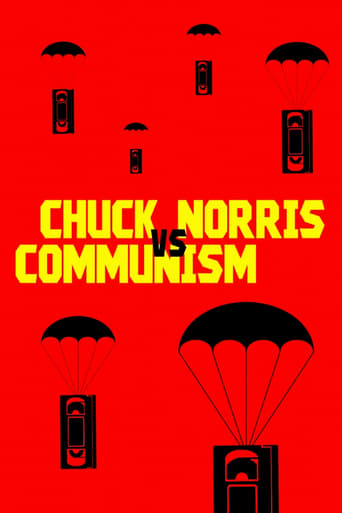m10001
I never knew a historical document about a conflict- book, film, whatever, that was perfectly balanced, but I believe that this film is better than many on this score. I urge you to listen to the podcast of Irina Nistor's interview on the public radio program Fresh Air, which includes important details left out of the film and also recounts what happened immediately after the incidents in the film. I liked the music and the lighting, but they seemed derivative of the documentary The Thin Blue Line, which is also excellent and which I commend to your attention.
RareshDiMofte
Extremely bad because of the mixture between the real nostalgia and exaggerated details. If Nistor worked for the National TV (the communist propaganda apparatus), how in the hell she dubbed the Western movies with her voice and nobody from Securitate recognized her? She would have been locked immediately. Now, this "documentary" was made to praise the last breath of the American influence in Eastern Europe.That is all. It would have been great if we would have seen only the stories of the real people, how much fun they had and what the real impact was. I know, I was one of them.
MartinHafer
I read a review here on IMDb by a Romanian and am am sure this person would be a much better judge of the central theme of this documentary. They felt that "Chuck Norris Vs. Communism" overstated its position that the illegal import of American 1980s videotapes into Romania served to introduce Western ideas into this communist dictatorship and this led to the fall of the government in 1989. While I agree this reviewer that this was overstated a bit, it surely had some impact on changing attitudes. However, the context of the time also must have had a lot to do with it as well...something never even mentioned in the film. In other words, communist bloc nations were throwing out their governments by refusing to work or do anything until their leaders resigned...and Romania was just part of that wave. So, I agree with tributarystu...but it's still well worth seeing.The film uses interviews and recreations to explain how Romanians smuggled in American films. Additionally, mostly one interpreter dubbed the movies (doing ALL the voices) and there was a cottage industry that was illegal but overlooked by various government officials. After all, they liked watching the films and there was some sort of payoff going on as well. It's all interesting and worth seeing...if a tad overstated.
SLUGMagazineFilms
From 1965 to 1989, the country of Romania was under the ruthless dictatorship of Nicolae Ceausescu and his Communist regime. While the Romanian people struggled under their political restraints, a few upstarts started passing around dubbed VHS copies of Western films. Through the gatherings that resulted from these clandestine cinema clubs, the Romanian people learned about the world outside of their country's oppressive borders. The films that were so widely released and distributed in the United States and Western Europe became small relics of freedom and hope to the Romanian people who brought them illegally into their homes. Through interviews with those who were on the front lines of this quiet rebellion—along with a loving tribute to Irina Nistor, the woman who translated and dubbed literally thousands of these movies despite the political danger—Chuck Norris vs. Communism reaffirms the power that stories have in people's lives. And this reaffirmation also comes the implication that all of this illegal movie watching was a direct influence on the regime's downfall in 1989—a little bit hard to swallow considering all of the other factors at play within the Romanian Revolution. Also, considering the film is named after Chuck Norris, it was surprising to see so little coverage of his cinematic oeuvre (such as it is). Regardless, it's a charming little doc for those of us who believe that movies can be a sanctuary in our darkest moments. –Alex Springer











